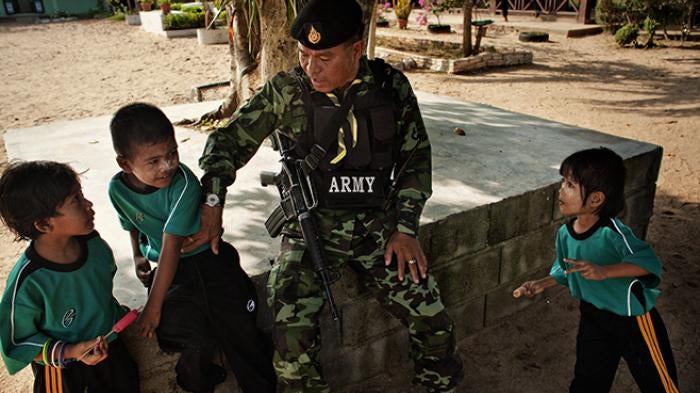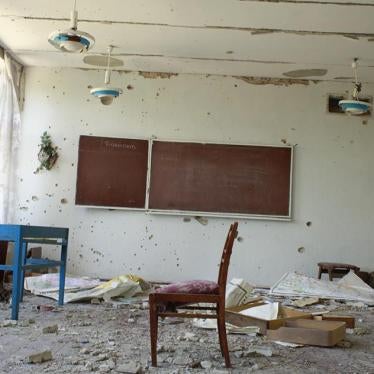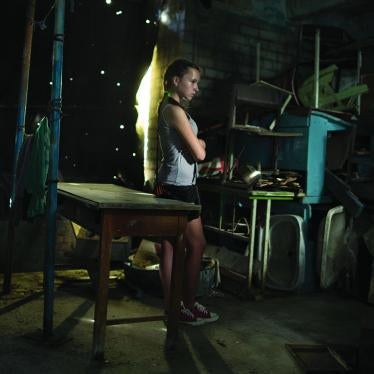Last summer, Nina Nikolayevna lost the school in eastern Ukraine where she was the principal. It was shelled by heavy artillery fire during the armed conflict.
Thirteen-year-old Martha was forced to flee her village in South Sudan because of armed conflict. When her family returned two years later, the one thing she looked forward to most was being able to go to school again. But her school was being used by soldiers, who ate, slept and drank there.
In Nigeria, Hassan lost his legs when Boko Haram attacked his school grounds. For a long time his father had to carry him, and he finally got a wheelchair.
Many children around the world cannot go to school because of military attacks on their schools or because soldiers are using their schools as barracks, training facilities or detention centers. We all recognize that education is critically important and that all children have a right to education. But people often aren’t aware how often schools and their students and teachers are victims of armed conflict. When military forces occupy schools, they can become legitimate military targets and thus be attacked, potentially injuring or killing students and teachers, and leaving communities without their schools long after peace returns.
Human Rights Watch has joined forces with a coalition of human rights and humanitarian organizations to protect schools, students and teachers, as well as the right to education during armed conflict. The Netherlands has taken a leadership role in the movement for international protection by embracing the Safe School Declaration and associated Guidelines. These international guidelines call on parties to armed conflict to protect schools, teachers and students.
The Netherlands was very involved in drafting the Guidelines, which 51 countries have so far promised to follow. Nearly a year ago, the Dutch minister of foreign affairs, Bert Koenders, promised that the Netherlands would support the guidelines and dedicate itself to seeing that they were carried out. Such a leadership role is consistent with the history of the Netherlands as a country that champions international legal standards and the protection of civilians in armed conflict. The Netherlands could be the first European Union country to put the guidelines into effect.
The next step is for the Defense Ministry to carry this initiative forward by reporting on the steps it took to follow the guidelines and sharing best practices with other countries. The Netherlands is well-placed for this since it currently holds the EU chairmanship and is seeking non-permanent membership on the UN Security Council. The Defense Ministry should also lead by example by sharing the steps it has taken to protect its schools with fellow EU and NATO countries. The Netherlands can help to enable kids like Hassan and Martha and Nikolayevna, the school principal, to go back to school. Their situations are still waiting for adequate solutions and there are people like them.
Nikolayevna’s school was the last in her town where children were being taught in the Ukrainian language. But it is badly damaged, and its students are now enrolled in other schools. Many schools in the affected area are overcrowded.
Martha is back in school again, but the South Sudanese military set up camp right next door. Soldiers still frequently wander into the school and sleep there on rainy nights.
Hassan is back in school. But his school is now surrounded by a fence, there are guards equipped with body scanners, and the police and military patrol the area.







